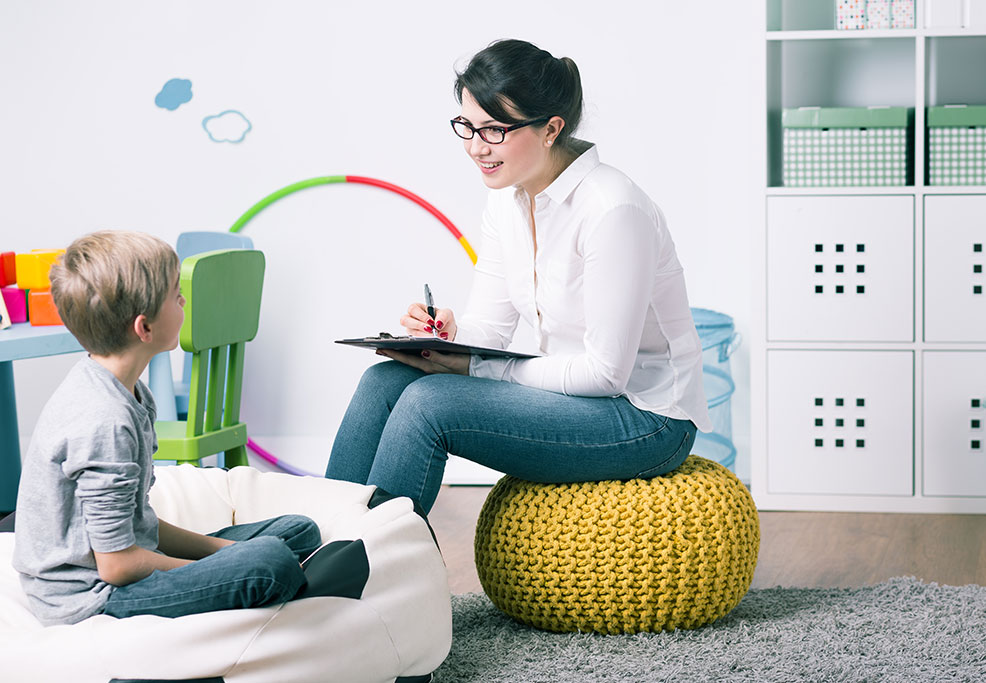Neuropsychological evaluations are considered the most comprehensive types of evaluations
Neuropsychological services are provided by a clinical psychologist that has received additional, specialized training in the area of neuropsychology, and specializes in understanding how brain structures and systems relate to behavior and thinking. Neuropsychologists focus on the evaluation of brain-behavior relationships and neurocognitive functioning.

Your child's doctor, teacher, school psychologist, or other provider may have referred your child or adolescent for a neuropsychological evaluation to evaluate their brain functioning in some the following areas:

prematurity / very low birth weight / in utero exposure to substances / asphyxia / fetal distress / hypoxia / anoxia / aphasia / encephalopathy / hydrocephalus / encephalitis / meningitis / metabolic disorder / genetic abnormality / brain hemorrhage / cancer / congenital heart defects

A psychoeducational evaluation provides information regarding a child or adolescent's academic achievement and intellectual abilities.

Developmental evaluations can determine if your child is meeting developmental milestones in different domains, including language, motor skills, cognitive, social skills, and self-care.

Gifted testing is often done to determine if a child or adolescent is intellectually gifted. Most parents seek gifted identification for their child in order to gain entry to certain gifted programs or services. Some schools that offer gifted curriculum will use testing as a measurement tool to qualify students who score above a certain threshold.
We are glad you have taken the first step to help your child in determining how to help your child thrive. We are here to help you determine which type of evaluation is best for your specific case. With the understanding that each individual is unique and complex, we will review your child's history from preconception to present day during your initial interview, to determine which evaluation best fits your needs, and then outline the next steps in your journey.
Dr. Mir understands that your child is much more than just a test score. As such, all testing is completed by her, in a one-on-one setting, so that Dr. Mir can focus solely on your child. An assessment consists of an initial consultation meeting (clinical interview), testing session(s), scoring and interpretation, feedback meeting, and a follow up meeting.
Testing is not invasive. There are no shots or bloodwork. Instead, it more closely resembles dynamic activities completed at school, such as answering questions, looking at pictures, and working with puzzles.
1. Clinical Interview: This is the initial session with the parent(s) or legal guardian(s) to discuss their concerns, reason for the evaluation, and gather medical, developmental, and socio-emotional history. Adolescents are encouraged to attend this meeting.
During this session, we will determine which evaluation best suits the child’s/adolescent’s needs.
2. Testing session(s): Testing will take several hours, typically 3 to 8 hours, and may be spread out over separate sessions, depending on the child/adolescent. Testing consists of various standardized measures in the form of paper-and pencil, tests on an iPad, hands-on activities, and question-and-answer problems. Your child may have as little as one testing session or as many as four sessions. Additionally, parent(s) or legal guardian(s) and teacher(s) will typically be provided with child rating forms to get a better understanding of how the child/adolescent is doing at home and at school.
3. Scoring, Interpretation, and Report Writing: During this step, all assessment measures and questionnaires are scored. Then, all available data, including assessment scores, behavioral and performance process during the evaluation, past neuropsychological evaluations, and medical and school records are reviewed, analyzed and integrated into a comprehensive report.
4. Feedback session: Two to three weeks after all testing has been completed, Dr. Mir will meet with the parent(s) or legal guardian(s), to discuss the results and provide recommendations, and the final report will be provided. Adolescents are encouraged to attend this session.
5. Follow-up session: During this session, the parent(s) or legal guardian(s) can discuss any updates or changes.